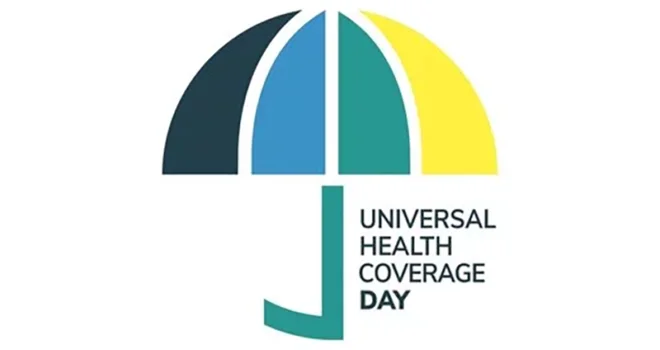WHF is the only CVD organization in official relations with the WHO. Advocating directly to the WHO for improved CVD prevention and control.
Strategically located in Geneva, the seat of the World Health Organization (WHO), WHF advocates at the highest levels to bring CVD to the forefront of the global health agenda. We work with representatives of Member States and key decision-makers at the WHO in a number of ways:
- Attending and advocating at global and regional meetings organized by WHO
- Aligning our workplan and objectives with the WHO goal of achieving a 25% reduction in premature mortality from NCDs by the year 2025 and UN SDG 3.4 on reducing by one third premature mortality from non-communicable diseases through prevention and treatment and promote mental health and well-being by 2030.
- Working with key teams within the WHO to develop and implement health tools and policy
- Supporting the WHO Global Coordinating Mechanism
- Responding to consultations on CVD-related health topics
- Engaging with and supporting Member States as they work to achieve UHC
The World Heart Federation Advocacy Team represents the policy interests of our Members at major regional and global health conferences to advocate for improved CVD prevention and control.
The Executive Board (EB) meetings of the WHO are held twice annually, in January/February and May/June. During these meetings, Member States debate pressing global health issues and propose draft resolutions to tackle these problems, which are then submitted for consideration and adoption at the World Health Assembly.
The World Health Assembly (WHA) is the main decision-making and governance body of the WHO, where Member States debate and decide on key global health issues. Taking place in Geneva once a year, its agenda is largely determined by the WHO Executive Board meetings.
The WHO Regional Committee Meetings offer additional key advocacy opportunities. Held annually from August to October, these meetings address pressing health issues specific to each of the six WHO Regions.
At each of these meetings, the WHF Advocacy Team takes the opportunity to make statements on Agenda Items relevant to CVD and NCDs, as well as related topics, such as access to essential medicines and the health of refugees and migrants.
The WHO Executive Board, World Health Assembly and WHO Regional Committee Meetings also gather important health actors and decision-makers together, presenting valuable opportunities to advocate for improved CVD prevention and control at a targeted scale.
Providing a roadmap and policy options to achieve the global 25 by 25 targets
To accelerate the UN’s commitments to address NCDs in 2011, the World Health Organization created a Global Action Plan for the Prevention and Control of NCDs, which covers the years 2013-2020. This document was written in collaboration with the World Heart Federation and other health stakeholders and provides countries with a plan of action and menu of policy options to reduce their burden of CVD.
The Global Action Plan (GAP) recognizes that governments have a primary role and responsibility to play in responding to the challenge of NCDs, but require the support of international organizations and other experts. It is structured around a WHO goal of achieving a 25% reduction in premature mortality from NCDs by the year 2025. From this broad NCD goal, the World Heart Federation set its own ambitious global goal of reducing premature death from CVD by 25% by 2025.
Providing a framework to track progress towards the global 25 by 25 targets
To support the Global Action Plan, the WHO created the NCD Global Monitoring Framework (GMF) to track progress in preventing and controlling the four major NCDs. The GMF tracks progress on NCDs against the nine voluntary global targets highlighted in the GAP, so is a key tool to hold countries accountable to their UN commitments. The framework is also intended to provide the foundation for advocacy, raising awareness, reinforcing political commitment and promoting global action.
Created in 2014, the WHO Global Coordination Mechanism on NCDs (GCM) was established to support the implementation of the Global Action Plan (GAP) and Global Monitoring Framework (GMF) by coordinating activities, engagement and cross-sector action. Led by Member States, other participants include United Nations organizations, non-governmental organizations and academic institutions.
The World Heart Federation has participated actively in the GAP, GMF and GCM since their inception, both independently and through the NCD Alliance.
WHF is the only CVD organization in official relations with the WHO. This special status not only allows us to make statements representing the interests of our Members at meetings of the governing bodies, but also necessitates a formal shared workplan and close working relationship with the Department for Universal Health Coverage/Communicable and Noncommunicable Diseases.
WHF currently supports the WHO in its promotion of the HEARTS technical package, development of capacity-building materials related to air pollution and CVD, and implementation of the 2018 WHA Resolution on RHD, among other areas of work.
Latest News
World Universal Health Coverage Day: Bridging the gap between commitments and action for cardiovascular health
Thursday 12 December 2024 marks seven years since World Universal Health Coverage Day was established, in recognition of the importance of strong, resilient health systems to ensure access to health services for all. The term Universal Health Coverage expresses into words the powerful goal of tackling health inequalities, which continue to be deeply rooted within […]
Universal Health Coverage
Capturing the true picture of Chagas disease to end its dangerous impacts
Chagas Disease has long been one of the world’s most neglected diseases with a complex prognosis if left undetected and untreated. The Chagas Observatory is a new tool aiming to improve patient outcomes, boost medical approaches, and influence supportive health policy. Now found beyond Latin America, Chagas disease manifests via often subtle symptoms and sometimes […]
Chagas Disease
European Union takes action for the cardiovascular health of its 440 million people
Brussels, 3 December, 2024 — The European Union (EU) has adopted Council Conclusions that will set a milestone for the continent’s cardiovascular health. Cardiovascular disease (CVD) – the leading cause of death in the EU and globally – affects more than 60 million Europeans, accounts for over 1.7 million deaths annually on the continent, and […]
A Global Milestone: WHO Launches New Guidelines To Combat Rheumatic Heart Disease
The World Heart Federation (WHF) is excited to announce that the World Health Organization (WHO) has officially released its new Guideline on the Prevention and Diagnosis of Rheumatic Fever and Rheumatic Heart Disease. This key resource represents a major milestone in global efforts to combat rheumatic heart disease – a completely preventable condition that continues […]
Rheumatic Heart Disease



